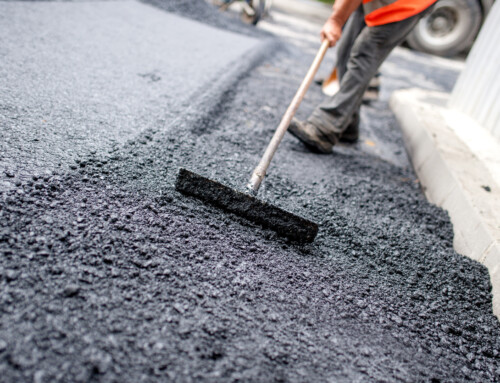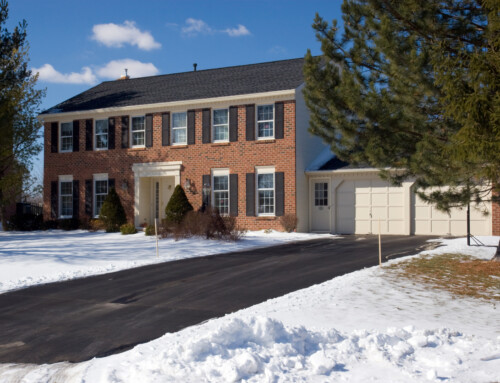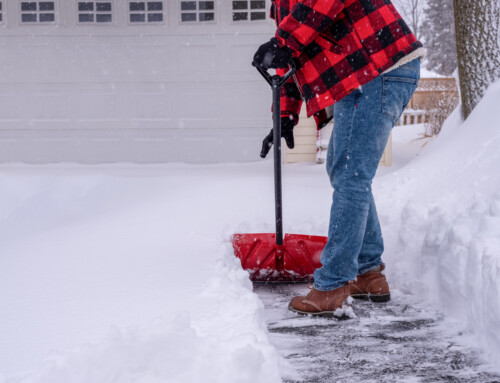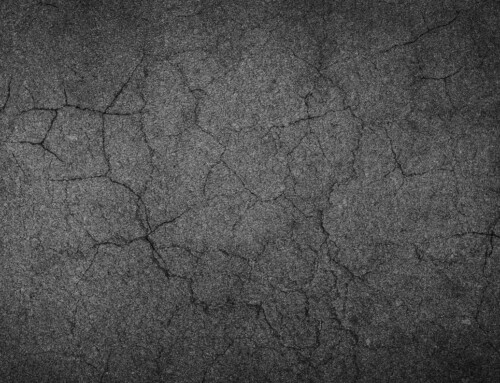Just like you probably give little thought to the air you breathe, you probably spend little to no time thinking about the makeup of your driveway. In both cases, though, once a problem arises (you’re wheezing or gasping for air – or you’re jostled by potholes or bothered by cracks or pesky stains you can’t get rid of) your attention shifts. You come to appreciate that which you’ve taken for granted!
Let’s take a closer look at the latter: Your driveway. If you’re suddenly spending time thinking about it, you’re probably contemplating have it refinished. (Or, maybe you’ve decided to pave a brand new driveway where one didn’t exist before.) In either scenario, you have one key decision to make: Should you go with asphalt or should you go with concrete?

Asphalt: America’s Paving Material of Choice
The more than 3,500 asphalt plants in the United States produce approximately 30 million tons of asphalt each year. The vast majority of paved roads (92%) are covered with asphalt. Why is asphalt the material of choice for America’s roadways? One major reason is that it costs up to 40% less than concrete.
Asphalt also can withstand the most punishing traffic, lasts up to 20 years with regular preventive maintenance, is smoother than concrete, and is ready for traffic shortly after it has been applied. Concrete must cure for a long period of time. Asphalt is the material of choice for our nation’s transportation infrastructure — and is the ideal choice for your driveway.
Asphalt is A Quick, Cost-effective Way to Restore Your Driveway
If you want to rejuvenate an existing driveway that’s cracking, pitting, flaking, or stained, you have two options. You can hire a crew to jackhammer your existing surface, haul away the debris, and pour a new concrete slab. Or, you can hire an asphalt paving service to install an asphalt overlay.
An asphalt contractor will deposit a layer of hot asphalt about one or two inches thick over an existing surface that has degraded over time. The asphalt is immediately spread, rolled, and compacted while it’s still hot. Once it cools and dries, your driveway will look brand new, yet cost a fraction of the initial paving job. Depending on season (asphalt cures more quickly in warm temperatures), an asphalt driveway may be ready to use in as little as two days. (Concrete, on the other hand, may take a week to cure.)
An Asphalt Driveway is Easier to Maintain than A Concrete Driveway
Have you ever taken a walk through your neighborhood and stumbled over cracking, buckling sidewalks? Most sidewalks are paved with poured concrete. When they crack or crumble, there’s little that can be done to repair them besides hiring a concrete company to pour more concrete. The same is true of concrete driveways. If you have an asphalt driveway that eventually begins to show signs of cracking, you can repair it quickly and inexpensively on your own with widely available, easy-to-apply sealants available at most home improvement retailers.
Asphalt is More Durable than Concrete
The durability of any concrete surface is highly dependent on proper installation. Concrete must be prepared with the correct ratios of ingredients, or it won’t set properly. Additionally, concrete will degrade over time if it is subjected to deicing salts applied in cold climates. The salt infiltrates the porous surface and eventually causes a condition called “spalling,” which causes the top layer of the driveway to flake off. Asphalt doesn’t flake, and can stand up to salts and other harsh materials.
Unlike concrete, asphalt flexes and is able to better withstand temperature extremes. The expansion in the heat of summer and the contraction during the chill of winter will, over time, cause concrete to weaken and crack.
Asphalt Driveways are Black: That’s Beneficial for Two Key Reasons
A major complaint that homeowners have with their concrete driveways is that they stain easily. Motor oil, spills, crushed tree debris … over time a concrete driveway becomes discolored and dirty. A black asphalt driveway hides stains, naturally! Additionally, the rich, black hue simply looks more sophisticated than concrete and aesthetically complements the exterior of most homes.
Another benefit of asphalt’s dark color is that it retains the sun’s heat. If you live in a cold climate with snowy, icy winters, you’ll appreciate the fact that snow will melt more quickly and ice will form more slowly on asphalt. Your driveway will be safer, and you’ll have less snow to shovel!
If you are ready to give your driveway a makeover, or pave a brand new driveway, asphalt is longer-lasting and more cost-effective than concrete. When you choose asphalt, your driveway will be functional and reliable and eventually blend into the background where it belongs. After all, you have more important things to occupy your thoughts! Contact TopWest Asphalt today at 604-755-0300 to arrange a quote.





